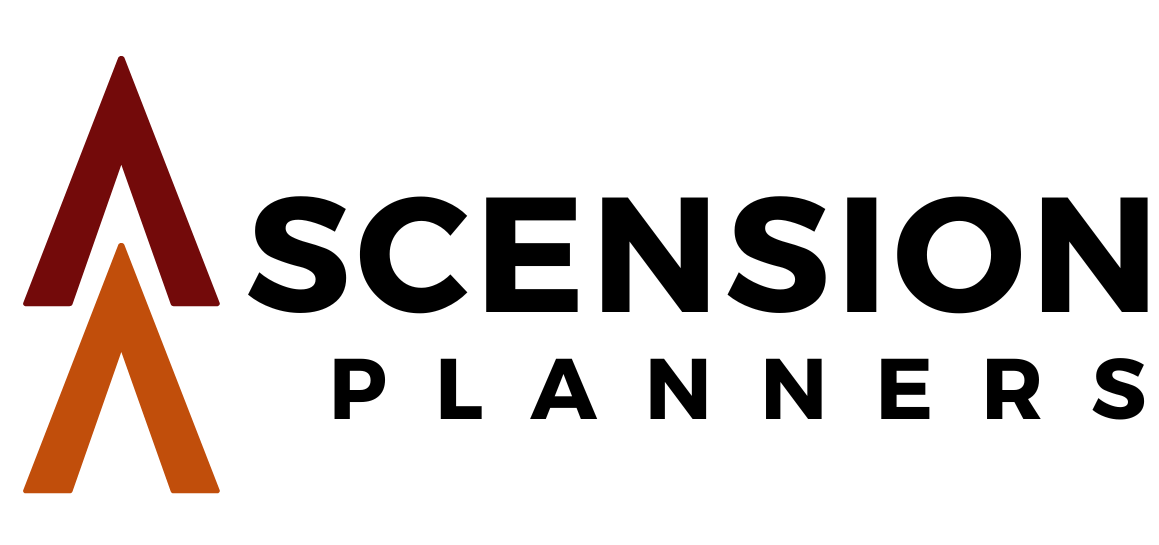
If only I could turn back time and have a heart-to-heart with my younger self about some myths that I had about planning. Alas, here we are, learning from our experiences and ready to share some golden nuggets of wisdom with you. So, whether you’re structuring your home life, starting a business, or embarking on any grand endeavor, buckle up because I’m about to spill the tea on the ten things I wish I knew when I started planning.
This blog post is here to shatter planning misconceptions and show you that planning is for everyone, regardless of your natural organizational skills or budget. We’re going to explore the true value of planning and provide you with actionable steps to incorporate planning into your life effectively.
We’ll address common myths such as planning being rigid, time-consuming, or only suitable for professionals. We’ll prove that planning enhances creativity, saves you time, and helps you achieve your goals with precision. From affordable planning options to flexible strategies, we’ve got you covered.
So, get ready to take charge of your life, unleash your potential, and accomplish more than you ever thought possible. Together, we’ll embrace the power of planning, debunk those myths, and pave the way for a future filled with success, productivity, and fulfillment. It’s time to grab your favorite pen, open your mind to new possibilities, and let the journey begin!
Myth 1: Planning is only for big projects or major life events.
Reality: Planning is beneficial for projects of all sizes and aspects of life. Whether it’s organizing your daily routines, scheduling self-care activities, or planning a small gathering, having a plan in place sets you up for success. By breaking down your goals into manageable steps, you create a roadmap to achieve them. So, start by identifying a smaller project or routine in your life that could benefit from planning. Take action by incorporating keywords like “daily planning,” “routine organization,” and “small project planning” into your process. Embrace planning in the little things and witness the impact it can have on your productivity and well-being.
Action Step: Start by identifying a smaller project or routine in your life that could benefit from planning. It could be meal planning, a workout schedule, or even a self-care routine. Incorporate keywords like “daily planning,” “routine organization,” and “small project planning” to guide your actions. Embrace planning in the little things and witness the impact it can have on your productivity and well-being.
Myth 2: Planners are only for highly organized people.
Reality: Planners are tools that can help anyone become more organized and focused. They provide structure and guidance, regardless of your natural organizational skills. If you feel overwhelmed or scattered, using a planner can be a game-changer in bringing order to your life. Start by choosing a planner that resonates with you, whether it’s a digital planner, a bullet journal, or a pre-designed organizer. Incorporate keywords like “planner selection,” “personalized organization,” and “increased focus” to guide your decision-making process. Remember, the right planner is like a supportive sidekick that helps you stay organized and achieve your goals.
Action Step: Choose a planner that resonates with you, whether it’s a digital planner, a bullet journal, or a pre-designed organizer. Incorporate keywords like “planner selection,” “personalized organization,” and “increased focus” to guide your decision-making process. Remember, the right planner is like a supportive sidekick that helps you stay organized and achieve your goals.
Myth 3: Planning restricts creativity and spontaneity.
Reality: Planning actually enhances creativity by providing a framework to organize thoughts and ideas. It allows you to be more intentional and strategic while leaving room for adaptability and spontaneity. Planning gives you the freedom to explore new possibilities within a structured framework. So, don’t be afraid to infuse your planner with your unique creativity! Use colorful pens, stickers, or illustrations to personalize your planner. Incorporate keywords like “creative planning,” “artistic expression,” and “flexible structure” to unleash your creative side. Embrace the balance between structure and creativity, and watch your imagination soar.
Action Step: Integrate creativity into your planning process. Use colorful pens, stickers, or illustrations to personalize your planner. Incorporate keywords like “creative planning,” “artistic expression,” and “flexible structure” to infuse creativity into your planning routine. Embrace the balance between structure and creativity, and watch your imagination soar.
Myth 4: Planners are a waste of time; I can remember everything in my head.
Reality: While you might have a good memory, relying solely on it can lead to missed tasks, deadlines, and opportunities. Planners help you stay organized, prioritize effectively, and ensure nothing falls through the cracks. They act as your external brain, freeing up mental space for creativity and higher-level thinking. So, start by noting down your to-do list and commitments in a planner. Incorporate keywords like “task management,” “memory aid,” and “time optimization” to guide your planning habits. Experience the relief of unburdening your mind and see the magic of externalizing your thoughts onto paper.
Action Step: Start by noting down your to-do list and commitments in a planner. Incorporate keywords like “task management,” “memory aid,” and “time optimization” to guide your planning habits. Experience the relief of unburdening your mind and see the magic of externalizing your thoughts onto paper.
Myth 5: Planning is rigid and inflexible.
Reality: Planning can be as flexible as you make it. It’s about creating a roadmap to guide your actions, but it also allows for adjustments and changes along the way to accommodate unforeseen circumstances. Planning gives you a structured foundation while empowering you to adapt and pivot when needed. So, embrace the concept of flexible planning by incorporating keywords like “adaptive planning,” “course correction,” and “agile strategy” into your mindset. Build flexibility into your plan by leaving room for adjustments and alternate routes. Remember, life is unpredictable, and planning helps you navigate those twists and turns with confidence.
Action Step: Embrace the concept of flexible planning by incorporating keywords like “adaptive planning,” “course correction,” and “agile strategy” into your mindset. Build flexibility into your plan by leaving room for adjustments and alternate routes. Remember, life is unpredictable, and planning helps you navigate those twists and turns with confidence.
Myth 6: Planners are expensive and luxurious.
Reality: Planners come in a wide range of price points, including affordable options. There are digital planners, free planning apps, and even printable templates available, making planning accessible to everyone. You don’t need to break the bank to start planning effectively. So, explore different planning options within your budget. Incorporate keywords like “budget-friendly planners,” “affordable planning tools,” and “cost-effective organization” to find resources that suit your financial situation. Embrace the power of planning without worrying about the price tag.
Action Step: Explore different planning options within your budget. Incorporate keywords like “budget-friendly planners,” “affordable planning tools,” and “cost-effective organization” to find resources that suit your financial situation. Embrace the power of planning without worrying about the price tag.
Myth 7: Planning takes too much time and effort.
Reality: While setting up a planner initially requires some time and effort, the benefits of planning far outweigh the upfront investment. Once you establish a system that works for you, planning can actually save you time and reduce stress. It helps you prioritize, stay focused, and make the most of your precious hours. Dedicate a specific time each day or week to plan ahead. Incorporate keywords like “time-saving planning,” “productive routines,” and “stress reduction” to motivate yourself. Remember, investing time in planning upfront pays off in increased efficiency and productivity in the long run.
Action Step: Dedicate a specific time each day or week to plan ahead. Incorporate keywords like “time-saving planning,” “productive routines,” and “stress reduction” to motivate yourself. Remember, investing time in planning upfront pays off in increased efficiency and productivity in the long run.
Myth 8: Planners are only for professionals or businesspeople.
Reality: Planners are valuable tools for anyone looking to organize their life and achieve their goals, regardless of their professional background. Whether you’re a student, homemaker, freelancer, or retiree, everyone can benefit from the structure and clarity that planning provides. Identify an area of your personal life that could benefit from planning. It could be your fitness journey, personal development goals, or even family activities. Incorporate keywords like “personal goal planning,” “life organization,” and “work-life balance” to guide your planning endeavors. Embrace the planner’s versatility and make it a companion in all aspects of your life.
Action Step: Identify an area of your personal life that could benefit from planning. It could be your fitness journey, personal development goals, or even family activities. Incorporate keywords like “personal goal planning,” “life organization,” and “work-life balance” to guide your planning endeavors. Embrace the planner’s versatility and make it a companion in all aspects of your life.
Myth 9: Planners make you too rigid and unable to go with the flow.
Reality: Planning helps you establish priorities and goals, but it doesn’t mean you can’t be adaptable. In fact, having a plan in place allows you to be more flexible because you can make informed decisions and adjust when necessary. Planning gives you the confidence to navigate change while staying on track. Embrace keywords like “flexible goal-setting,” “adaptable planning,” and “mindful adjustments” to cultivate a flexible mindset. Allow your plan to be a guide, not a rigid rulebook. Embrace unexpected opportunities and make conscious choices while staying true to your overall vision.
Action Step: Embrace keywords like “flexible goal-setting,” “adaptable planning,” and “mindful adjustments” to cultivate a flexible mindset. Allow your plan to be a guide, not a rigid rulebook. Embrace unexpected opportunities and make conscious choices while staying true to your overall vision.
Myth 10: Planners are one-size-fits-all solutions.
Reality: Planners come in various formats, layouts, and styles to suit different preferences and needs. Whether you prefer digital planners, bullet journals, or pre-designed organizers, you can find a planner that aligns with your unique planning style. Explore different types of planners to find the one that resonates with you. Incorporate keywords like “personalized planning system,” “customizable organizers,” and “individual planning style” to guide your search. Remember, the best planner for you is the one that matches your preferences and supports your planning journey.
Action Step: Explore different types of planners to find the one that resonates with you. Incorporate keywords like “personalized planning system,” “customizable organizers,” and “individual planning style” to guide your search. Remember, the best planner for you is the one that matches your preferences and supports your planning journey.
Now that we’ve debunked these myths, it’s time to unleash the true potential of planning in your life. Embrace the power of planning, whether it’s for small routines or significant goals. Choose a planner that suits your style, be flexible, and remember that planning is a tool to enhance your productivity, creativity, and overall well-being. So, my fellow goal-getters, let’s plan our way to success and make our dreams a reality!
Additional Resources:
- Trello: A popular project management tool that helps you organize and plan your tasks. [Link: https://trello.com/]
- Todoist: A task management app that allows you to create to-do lists, set reminders, and track your progress. [Link: https://todoist.com/]
- Evernote: A note-taking app that helps you capture and organize ideas, make to-do lists, and collaborate with others. [Link: https://evernote.com/]
- Passion Planner: A physical planner designed to help you set goals, stay organized, and prioritize your tasks. [Link: https://passionplanner.com/]
- Google Calendar: A free online calendar tool that allows you to schedule events, set reminders, and share your calendar with others. [Link: https://calendar.google.com/]
- Bullet Journal: A flexible and customizable method of journaling and planning that combines to-do lists, calendars, and creative expression. [Link: https://bulletjournal.com/]
- Asana: A project management tool that helps teams plan, collaborate, and track progress on tasks and projects. [Link: https://asana.com/]
- Notion: A versatile productivity tool that combines note-taking, task management, and project planning in one platform. [Link: https://www.notion.so/]

